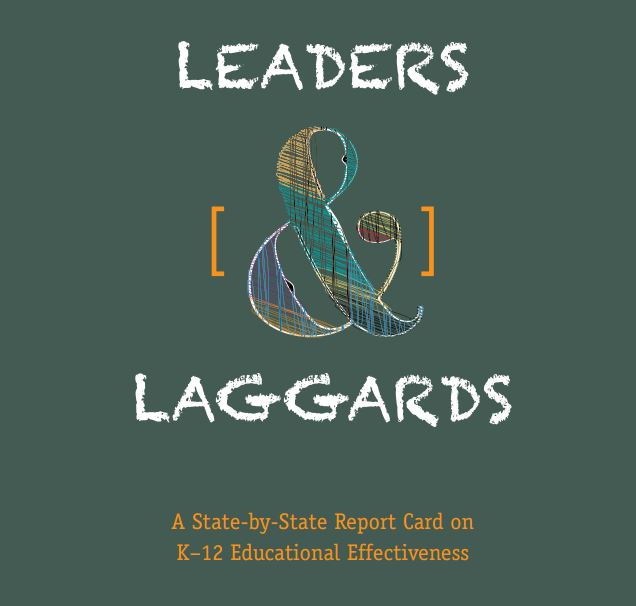U.S. Chamber of Commerce Foundation Recognizes NMSI Efforts in Report
Tara Marathe |
September 11, 2014
 The United States will not be able to meet its workforce demands at the current STEM success rate. That’s according to the fourth edition of the U.S. Chamber of Commerce Foundation’s Leaders and Laggards report series. Released today, the 2014 report is the latest state-by-state report card on the effectiveness of K-12 educational systems across the country.
The United States will not be able to meet its workforce demands at the current STEM success rate. That’s according to the fourth edition of the U.S. Chamber of Commerce Foundation’s Leaders and Laggards report series. Released today, the 2014 report is the latest state-by-state report card on the effectiveness of K-12 educational systems across the country.
2014 Leaders and Laggards
A good measure of student preparedness in STEM is the proportion of students receiving qualifying scores (three or higher on a five-point scale) on Advanced Placement (AP*) math and science exams. Based on data provided by the College Board, the report notes wide variation in performance on AP exams in ten math and science subjects across the country. For example, about one in six students in Massachusetts graduated high school and passed an AP STEM course — the highest rate in the country. For Mississippi, it was just 1 in 80.
The report credits organizations like NMSI—whose teacher training programs are now operating in more than 600 schools across 26 states—that have helped dramatically increase the number of students taking and achieving qualifying scores on AP STEM exams.
High schools that participate in NMSI’s College Readiness Program see an average first-year increase in qualifying math, science and English AP exam scores that is 10 times the national average. Key elements of the program’s success include shared accountability and goal setting with schools, extensive training for teachers, more time on task for students, and achievement-based awards for students and teachers.
“After its three-year engagement with schools already participating in the program, NMSI will have driven an increase in AP class enrollment of over 81,000 seats,” said NMSI CEO Sara Martinez Tucker. “That many more young people will be better prepared to succeed in college and career and we are working to move the needle even farther.”
NMSI believes that with proper support and resources, we can improve the state of our public education system and provide America’s students with the necessary skills and content knowledge they need to stay competitive in today’s global economy. Their future success—and ours as a nation—depend on it.
*Advanced Placement and AP are registered trademarks of the College Board.